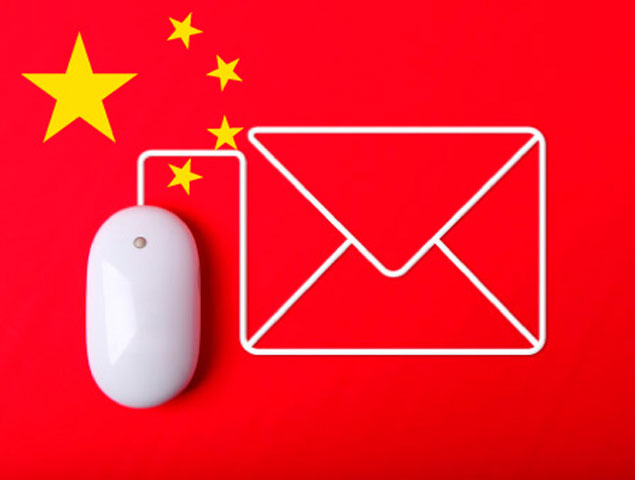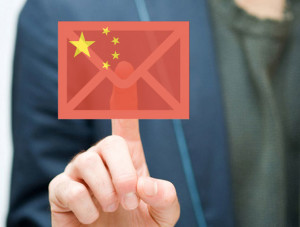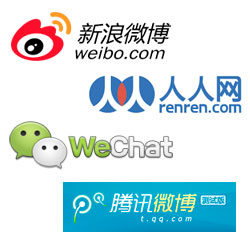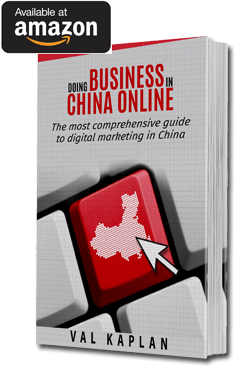Last week we looked at design rules for effective email marketing campaign in China. This time we are going to look into content.
Obviously, the content of an email marketing campaign in China is just as critical as its graphics and structure. Therefore, it is important to make sure that email’s content complies with the rules and regulations that may be different in China compared to other jurisdictions.
General rules about content for email marketing campaign in China
Headline is, by far, the most important part of an email. There is much better chance for a recipient to continue reading the email if the headline appears interesting or intriguing enough rather than generic and bland. Everything that follows afterwards should be presented in the order of decreasing level of importance.
When it comes to content of promotional emails, less is always more. Reducing the volume of text without sacrificing the impact is not something that is easily achievable. However, refining the content, simplifying the language and keeping the size to the minimum is well worth the effort.
The rules mentioned above are fairly universal and should be followed regardless of whether we are talking about email marketing campaign in China or for international audience. However, choosing the proper tone of the main text copy does require taking into account cultural specifics.
In the West, it is considered to be popular to use informal, light and often humorous language in many marketing emails. This does not often translate well for Chinese readers. Adopting a tone that is too informal may actually convey a message of low level of commitment or poor quality. Using a reasonably formal or neutral language is typically the best choice for most brands.
Straight translation of English copy into Chinese rarely works well. This is why it is recommended to use professional native copywriters for email marketing campaign in China. They will make sure that the language is appropriate, respectful and avoids cultural references that are not widely understood in China.
Subject line
Subject line is what email recipient sees the first. The general rule here is for the subject line not to appear “spammy”. Advertisers are constantly trying to come up with new ideas to “hook” the readers – from using intriguing questions to making outrageous claims in the subject lines.Choosing the best performing subject line very much depends on the profile of both the business and the recipients. For example, a simple indication of what the message is about will do just fine for an existing mailing list of dedicated audience who are already familiar with the brand.
For new recipients of an unfamiliar message, making subject line appearing less generic typically works better.
There are different opinions of the effectiveness of using special characters and icons in the subject line – some find it catchy and interesting while others can be put off by them. On average, using icons in subject line increases open rate but, on the other hand, some email filters may classify it as spam.
Most EDM providers have an option to run A/B split tests on different versions of the subject line. This is an effective way to figure out whether using special characters is a good idea for a given audience.
Word “AD” in subject line
Chinese antispam regulation requires all promotional email to include word “AD” or equivalent in the subject line. Failure to do so may get you fined and/or cause your domain to get banned and become permanently inaccessible in China.
Here is an example of how it is supposed to appear in email marketing campaign in China:
Courtesy of Apple Inc.
Links to downloadable content
It is best to avoid links to downloadable content such as apps or software. If the email must have such links, advertisers should also include a disclaimer stating that the downloadable content does not include spyware, malware or any other unsafe content.
It is a good idea to have such written document ready to be presented upon request from China’s internet authorities.
What can and can’t be legally promoted in China
Before starting an email marketing campaign in China to promote a product or a service, it is critical to verify its local legal status. Currently, wide range of topics that are perfectly legal to advertise in other countries are either outright banned in China or fall into legal grey area. Of course, an experienced China focused EDM provider such as Mailigen, would be able to advise you on that, although it makes sense to check for any possible issues before investing in your Chinese marketing.
For example, promotion of gambling, including online type, is strictly prohibited in China (with the exception of special administrative region of Macau). Marketing of alcohol and tobacco products are also prohibited as well as any adult content.
One of the most recently banned items include so called cryptocurrency. Although, most bitcoins are presently mined in China, as of August 2016, Baidu, the largest Chinese search engine has recently stopped approving advertising of bitcoin. This is the first indication that bitcoin marketing is on the way to became illegal in China.
Finally, when promoting events, advertisers must be especially careful to make it very clear that those have nothing to do with politics or religion.
Blacklisted keywords
Including any of the blacklisted keywords in email marketing campaign can cause serious problems for advertisers. This is why it’s imperative to check the text against the list of currently blacklisted keywords which can be found in Wikipedia.
Politics is the most sensitive topic and, as mentioned before, should absolutely be avoided in any case. However, some “innocent” words could occasionally get blacklisted as well, especially if they inadvertently become euphemisms carrying a second meaning.
This is why the list of blacklisted keyword is fairly dynamic and grows over time, so what was all right yesterday, could get banned tomorrow.
Links to landing pages and social media
A promotional email can have a number of links. Most commonly, the primary link is the one of the CTA (call to action) that redirects readers to a landing page (LP). Considering the fact that most users in China use smartphones to read emails, it is very likely that they are also going to view LP inside their phone’s mobile browsers.
This is the reason to make sure that LP renders properly on a small mobile screen without the need for a visitor to zoom it out in order to read it. Responsive design for LPs is equally important as for the email template itself. Unfortunately this part is frequently overlooked by advertisers.
If the LP design is not suitable for a mobile browser due to poor rendering or slow loading time, click through rate (CTR) of the email campaign will be effectively wasted further down the sales funnel.
Social media links can provide an additional source of followers and should certainly be included at the footer of an email unless those links are the principal CTA. Keep in mind, however, the different nature of social media landscape in China: there is little point to include Facebook, Twitter or YouTube links as they won’t work in China anyway. Instead, consider including link to Weibo page and WeChat QR code.When read on a desktop, a WeChat QR code can simply be scanned with a smartphone to follow a particular account. Unfortunately, it is not as straightforward for mobile users. In those cases, a reader has to be able to save QR code as a picture and then load it to WeChat in order to follow that particular account. This is quite cumbersome process for most users and unless they are really invested into finding your WeChat account, most would probably skip that step.
Hopefully, in the future, WeChat could offer an easier way to follow accounts directly from emails but, as of the time of this writing, we are not there yet.







